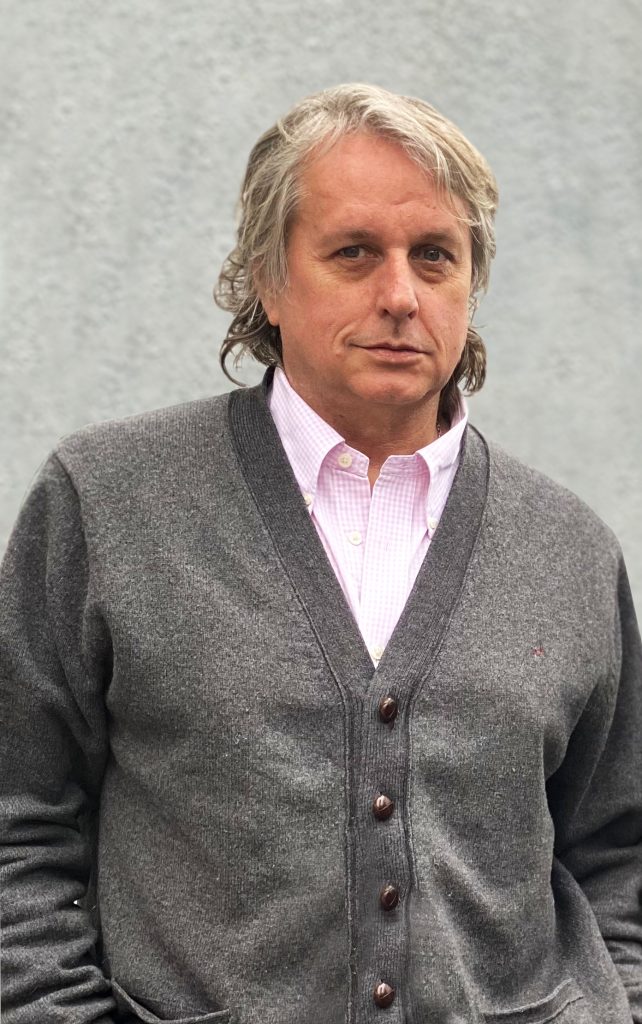Smartpack in VAS Magazine:
Innovating in packaging materials
PROMOTING A NEW GENERATION OF PACKAGING
The packaging industry is constantly evolving, but this time it is at a time that Smartpack, a specialist in packaging technology, describes as “very special”, since it is not only at a business level, it is also at a societal level. due to new demands for sustainable packaging.
“Currently, consumers are demanding new changes in the manufacturing of packaging and its raw materials, they demand new designs that are recyclable and friendly to the environment”, declares Juan Carlos Vial, CEO of Smartpack, in an interview with VAS 4.0 Magazine, adding that today “society is willing to raise the necessary costs by implementing new regulations such as the Extended Producer Responsibility Law (REP Law), which requires a reduction in the use of materials and packaging.

INNOVATING IN A NEW PACKAGING GENERATION
PROMOTING A NEW GENERATION OF PACKAGING
As a result of this, Smartpack aims to constantly innovate in new packaging that is friendly to the environment. They deliver solutions with single-material plastic structures and thickness reduction, achieving lower grammage containers with the same benefits. This concept is interpreted with our Halopack tray, which is a cardboard laminated with a layer of barrier plastic. Another product that is in line with sustainability is our linerless labels, which do not use backing paper, achieving between 40% and 50% less weight”.
A clear example of this is the disruption generated by Smartpack’s Halopack tray, since “this technology is the development of a printable cardboard tray, laminated with a layer of barrier plastic, which is sealed in a heat-sealing machine with injection of gases and a modified atmosphere process is applied that allows the useful life of the product to be extended”.
The added value or the factor that distinguishes this container is that, once used, the layer of plastic laminated to the cardboard can be easily separated, in order to dispose of these materials in the recycling networks. “This is how we developed a barrier tray that is recyclable in more than 90% of its weight and with the possibility of printing on all its sides, both internal and external.”
This is a clear example that Smartpack is working to develop “a new generation of packaging that does not pollute the environment, that can be recycled and reused. This is why, as a company, we identify new trends within the container and packaging industry at a global level to efficiently and comprehensively incorporate different solutions in the production processes of our clients and thus help to minimize the use of resources and the footprint. of carbon”.
DEVELOPMENT IN THE MIDDLE OF THE CRISIS
Developing this product in the midst of the current health crisis has been a challenge, according to the CEO, “more complicated than many previous years. In our case there was a migration of products from higher to lower added value. For example, the increase in frozen products compared to refrigerated products”.
Despite this, they also saw an opportunity within the market, “Bulk products are being transferred to sealed products, for various reasons, cost is one of them. Assisted selling at points of sale is expensive, to which is added safety, handling and traceability. As a consequence of the pandemic, we see a consumer with a greater concern for consuming products with less handling and traceability that is auditable”, explained Vial.
However, the great challenge at the industrial level is “to develop packaging focused on
sustainability, that are economical and attra
ctive to all consumers”, Vial pointed out, deepening that “the challenge really is to develop and use containers that are recycled and recyclable, for common use.
“It is not about selling to a few, it is about new developments and innovations being able to diversify on a global level and thus be able to contribute to the decontamination of the oceans, land and air, which have been impacted largely over time,” he said.
Along with this, he pointed out that “the sealing of products is our main line of business. “Our Proseal brand traysealers aroused the interest of our customers to be able to develop products with a better presentation, increase their useful life and lower their costs.”
Proseal is a company located in England, a world leader in traysealing machines, characterized by its excellent construction quality, which is carried out entirely within its facilities. “They have extraordinary software developments for machine and production control, giving customers the possibility of rescuing productivity data among other information. Its great competitive advantage over the competition is its unparalleled gas injection/scavenging system, which allows for higher production speeds and more economical tooling,” he explained.
Juan Carlos Vial added that “heat-sealing technology allows for the flexibility of changing the materiality of the containers, allowing the use of plastic, cellulose pulp, aluminum and glass containers. In this way, together with our clients we are developing and evaluating new packaging with a focus on sustainability to meet their needs and achieve innovative and environmentally friendly packaging.